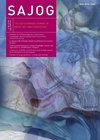The feasibility and advantages of laparoscopic surgery for ectopic pregnancy at a secondary hospital in South Africa
IF 0.4
Q4 OBSTETRICS & GYNECOLOGY
引用次数: 0
Abstract
Background. Ectopic pregnancy (EP) is a gynaecological emergency with implications for maternal morbidity worldwide. Laparoscopic surgery is the preferred method of surgical management in most cases, as it has been shown to improve patient outcomes and overall care and to be cost effective and efficient. Objectives. To investigate the feasibility of laparoscopic surgery for EP management at a secondary hospital, based on incidence rates and comparing surgery-associated variables and outcomes with those in laparotomy. Methods. A retrospective study design was used. All patients who were treated surgically for EP at the Worcester Provincial Hospital were included. The required sample size was 81. Data were collected from patient files and theatre reports. Cases were assigned to one of two cohorts based on the method of surgical management. Results. A total of 84 cases were identified, of which 48 (57.1%) were managed laparoscopically and 36 (42.9%) with laparotomy. The average surgical time was 34.6 minutes and 44.9 minutes for a laparotomy and a laparoscopy, respectively. Patients who were treated laparoscopically required significantly less postoperative pain relief and had shorter hospital stays. Conclusion. This study shows not only that laparoscopy treatment is a feasible option for EP in a secondary-hospital setting in South Africa, but also that the intervention is associated with significantly better patient outcomes than laparotomy. The demonstrated benefits make laparoscopy the preferred treatment modality for EP when surgical intervention is required.南非二级医院腹腔镜手术治疗异位妊娠的可行性和优势
背景异位妊娠(EP)是一种妇科紧急情况,对全球孕产妇发病率有影响。腹腔镜手术在大多数情况下是首选的手术管理方法,因为它已被证明可以改善患者的预后和整体护理,并且具有成本效益和效率。目标。根据发病率,研究在二级医院进行腹腔镜手术治疗EP的可行性,并将手术相关变量和结果与剖腹手术进行比较。方法。采用回顾性研究设计。所有在伍斯特省医院接受EP手术治疗的患者都包括在内。所需样本量为81。数据收集自患者档案和手术室报告。根据手术管理方法,将病例分为两组中的一组。结果。共发现84例病例,其中48例(57.1%)采用腹腔镜治疗,36例(42.9%)采用剖腹手术治疗。剖腹手术和腹腔镜手术的平均手术时间分别为34.6分钟和44.9分钟。腹腔镜治疗的患者术后疼痛缓解明显减少,住院时间更短。结论。这项研究不仅表明,在南非的二级医院环境中,腹腔镜治疗EP是一种可行的选择,而且与剖腹手术相比,这种干预措施能显著改善患者的预后。当需要手术干预时,腹腔镜检查的优势使其成为EP的首选治疗方式。
本文章由计算机程序翻译,如有差异,请以英文原文为准。
求助全文
约1分钟内获得全文
求助全文
来源期刊

South African Journal of Obstetrics and Gynaecology
Medicine-Obstetrics and Gynecology
CiteScore
0.40
自引率
0.00%
发文量
5
审稿时长
15 weeks
期刊介绍:
The SAJOG is a tri-annual, general specialist obstetrics and gynaecology journal that publishes original, peer-reviewed work in all areas of obstetrics and gynaecology, including contraception, urogynaecology, fertility, oncology and clinical practice. The journal carries original research articles, editorials, clinical practice, personal opinion, South Africa health-related news, obituaries and general correspondence.
 求助内容:
求助内容: 应助结果提醒方式:
应助结果提醒方式:


